Exactly two weeks ago, Toronto Maple Leafs’ general manager Kyle Dubas did something few people in his position do. He admitted he made a mistake as a leader. Specifically, during a Sportsnet conversation with Ron MacLean, he said that he has come to understand that there’s much more the Maple Leafs can and should do to help combat systemic racism.
Dubas noted, “What the last week has shown us is that merely living a good life yourself and treating other people well yourself … that’s great, but it’s not quite good enough in order to enact change in the greater swaths of society.”
Related: Maple Leafs News & Rumors: Robertson & Hoefenmayer
During the same two weeks, I’ve heard discussions that if the Maple Leafs don’t beat the Columbus Blue Jackets in the upcoming play-in series, both Dubas and head coach Sheldon Keefe’s jobs are in jeopardy. As a result of those two diverse occurrences, I thought it might be time to evaluate Dubas two years as the Maple Leafs general manager.
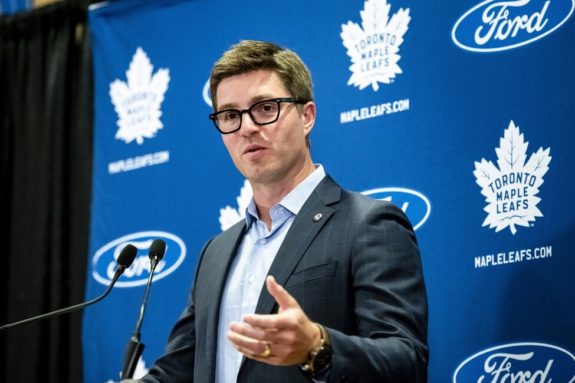
The Maple Leafs young general manager was promoted to his position just over two years ago – May 11, 2018, to be exact. How has he done in his job? In this post, I want to review Dubas’ body of work over his two years as the general manager by specifically focusing on answering four key questions.
My Conceptual Framework
For those people who care, and you certainly don’t have to, I use the by-line The Old Prof for two reasons. First, my son has the same name I do (Jim Parsons) and writes for The Hockey Writers and it seemed confusing to have two Jim Parsons writing hockey posts. Second, I am in fact old – in my mid-70s – and was a professor (having taught for more than 40 years at the University of Alberta in Edmonton).
In my former job, I was both a teacher and an academic researcher. When researchers produce research findings, to help readers understand those findings, they share their theoretical or conceptual framework. That is, they tell you where they’re coming from so you can interpret their findings in that light. Most researchers believe that the lens through which they see things and what they believe shapes their work.
Related: Maple Leafs’ Draft Picks That Got Away
Over the time I’ve written about the Maple Leafs, I’ve come to have a “take” on Dubas. I like him. I think he’s smart, caring – insofar as his job allows him to be, and a straight shooter in a culture where not everyone tells the truth. Many leaders hide their errors, but he hasn’t. I started this post noting he had admitted errors in how his organization had addressed systemic racism. He’s also admitted other errors, such as not handling the William Nylander negotiations well.
I like the direction he’s taking the team. I agree with his vision about how hockey should be played – it’s a fast, skilful, and beautiful game – and I believe he’s working to create that vision with the players he signs and drafts.
Anyone who knows Nic Petan’s story gets that. How he took care of Ilya Mikheyev in a New Jersey hospital shows the kind of guy Dubas is. He could have “distributed leadership” and made it someone else’s job – nope, he stayed there himself for several days.
Anyone can also see that he chooses draft choices wisely – two prospects, Nick Robertson and Nick Abruzzese – immediately pop up. Both players are small, smart, and exceedingly hard-working. Each is driven to succeed and will do the physical and mental work to make that so. Those are Dubas’ kinds of players.
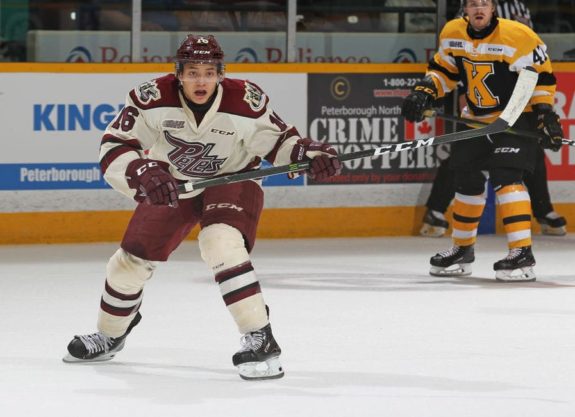
That’s my conceptual framework – I like Dubas. In this post, I want to review what I believe are his key tasks as an NHL general manager and evaluate how I believe he’s done to complete those tasks.
Question #1: Has He Built a Competitive Team?
This is the first question any NHL general manager must ask and answer: Can his team compete for the Stanley Cup? In fact, the day Dubas became general manager he stated that goal specifically. At the team’s news conference announcing his promotion, he said: “We enter into another part of our journey, which is to reach our ultimate goal of contending perennially to be fighting at this time for the Stanley Cup.”
How well has he done? In the short time since Dubas’ hiring, the Maple Leafs have had two seasons to show if they are competitive and one season to show what they could do in the Stanley Cup playoffs. In 2019, they lost yet again in the first round of the Stanley Cup playoffs to the Boston Bruins. On the face of it, that’s a failure, but the team almost won that series and the Bruins played a strong last game on home ice to pull it out. The Bruins went on a run and eventually lost to the St. Louis Blues in the Stanley Cup Final.
Related: Is Dubas’ Seat Warm if Maple Leafs Lose the Play-In?
Last season’s Maple Leafs team was good.
During this 2019-20 season – wow! When head coach Mike Babcock was fired, the team had lost more than half its games. After Sheldon Keefe became head coach, they had one of the better records in the NHL – although the team was injury-riddled and the defense devastated. Still, the team made the playoffs as the third-place finisher in the Atlantic Division.
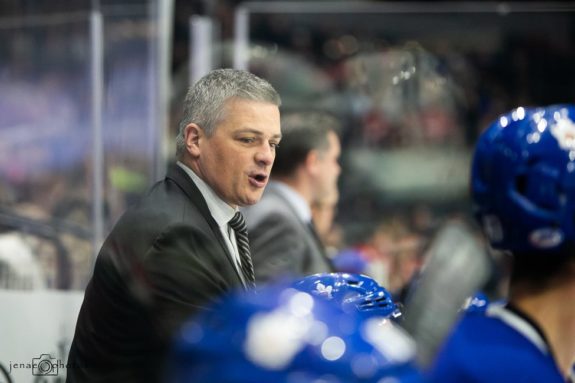
In short, in two seasons the team’s been positioned for a Stanley Cup run. So, Dubas has done what he said. Although the team hasn’t experienced playoff success, they are in the playoffs again.
Question #2: Has Dubas Overcome His Youth and Inexperience?
Dubas is only 34 years old. However, his work as an NHL general manager hasn’t seemed hampered because of his age. Obviously, he’s made mistakes, but he admits them. Really, what NHL general manager has not erred?
As I noted earlier, he admitted publicly that negotiations with Nylander didn’t go well. However, after adding little to the team in 2018-19 after he signed, Nylander came out strong this season and has played well enough that his $6.9 million contract almost seems like a bargain.
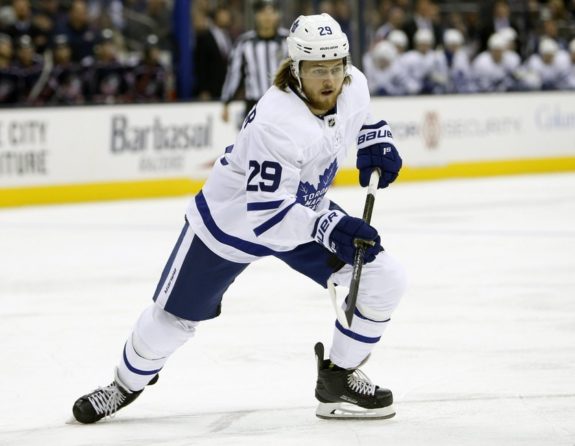
Given one shortened season of success, it seems Dubas didn’t err about Nylander’s skill. Furthermore, after all the hoopla, the young Swede is signed through 2023-24. Imagine how team-friendly that contract will seem in four seasons.
Through all this, Dubas has held to his vision about what he wants the team to look like, and (I’m reading between the lines) he seemed to do it against what might have been Babcock’s wishes. For example, in January 2019 Babcock spoke to Sportsnet’s Chris Johnston about the Jake Muzzin trade. He curiously noted, “There’s no question about it: It’s not perfect, it’s what we got. It’s what was available and we’re going to make it work.”
When I first read Babcock’s statement, I thought he was talking about his need to play Muzzin, a left-shot defenseman, on his off-hand. But, perhaps Babcock was talking about Muzzin in general. If so, he was completely wrong. Muzzin has proved not only to be a solid player but a strong leader in the dressing room as well.
Related: Maple Leafs Acquire Campbell and Clifford From Kings
In summary, Dubas has put together a quick, puck-hungry, possession-oriented team. I’m sure he’d want some mulligans, but what NHL general manager gets it right every time?
Question #3: Has Dubas Assembled A Strong Core of Players
It took Dubas 16 months to sign his “core of four” to long-term contracts. Chronologically these signings were John Tavares, Nylander, Auston Matthews, and Mitch Marner. As I noted, the Nylander negotiations weren’t smooth as Dubas admitted. All four are great players, and – although people can argue about the contract numbers – the ability of these four players is unquestioned.
Nylander had a career season, Marner’s amazing at seeing and creating space on the ice, Tavares is a class act who can score, but, no one’s played as well as young Matthews. He’s likely to become a 50-goal scorer each season of his contract. Matthews is also signed through 2023-24. By the way, Matthews is a complete player and was even mentioned by Maple Leafs’ President Brendan Shanahan as a candidate for the Selke Trophy.
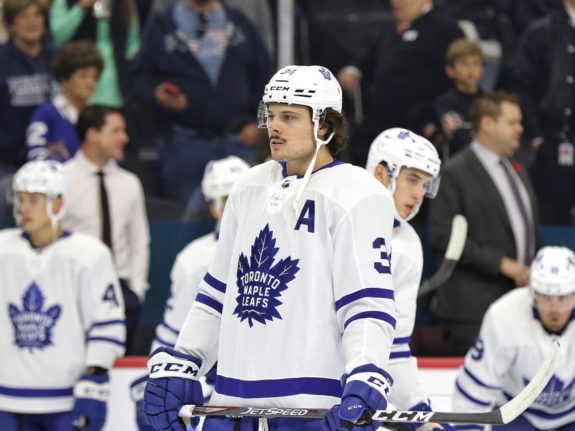
Marner’s scoring at better-than-a-point-a-game and has become one of the best two-way players in the NHL; on many NHL teams, he would be THE guy. Here, he’s one of several.
Captain Tavares quietly carries the team. He was injured this season, but who would dare bet against his being a 40-goal scorer next season and the season after? He’s a great representative for the team throughout the city, which is his hometown. That Tavares was named to the Return to Play Committee shows how respected he is throughout the league.
Dubas has assembled a solid quartet of skilled players. Signing them came with attendant salary-cap issues, but Dubas and his team have been able to figure out a way to make the salary cap work. That isn’t easy, but he’s shown it’s doable. The team’s in trouble again this offseason with the salary-cap limits, but that’s more the fault of the COVID-19 pandemic than his.
Question #4: Has Dubas Made Playing in Toronto Desirable?
To answer this question, I only need to note two names: Jason Spezza and Mikko Lehtonen. Both came to Toronto on very team-friendly contracts. Spezza brings experience and leadership and Lehtonen was the best defenseman in the KHL. Both are good players and cheap players. I see this trend continuing.
Related: The Worst 1st Overall Draft Pick…Ever
Obviously, Lehtonen hasn’t played a game with the Maple Leafs. But everything we hear suggests he’s a great player. Why did he come to Toronto? When Mikheyev was in the hospital, Dubas’ wife Shannon reminded him that, if they were parents of a young player who was horribly injured, they’d want to know their son was cared for.
That humanity wasn’t missed. Mikheyev’s agent shared that kindness throughout Russia. These actions have helped the organization. Players know when something good is going on.
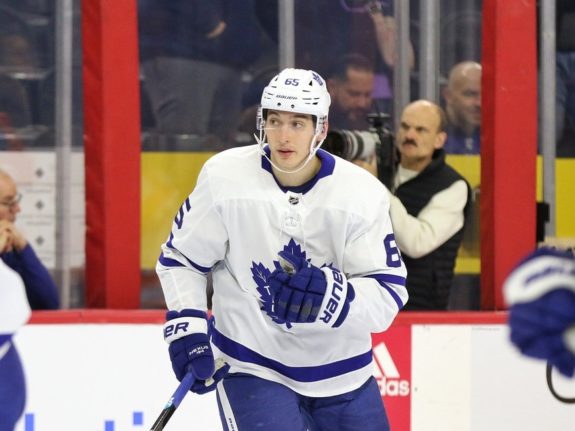
Spezza signed with the Maple Leafs prior to the 2019-20 season on an NHL league-minimum contract for two reasons. First, Toronto’s home and he wanted to play here. Second, he wants to win a Stanley Cup and believed the Maple Leafs had a great chance to make that dream a reality. The word is that the team wants more Spezza(s) on its roster. I’m betting Dubas will sign at least one Spezza-type player each season.
My Assessment of Dubas as the Maple Leafs General Manager?
Dubas is a polarizing figure. He has a difficult job, and not everyone thinks he’s doing it well. I’m on the other side and I’m anxious to see where his leadership moves the team over the next two seasons. He’s now partnered with Keefe, his long-time friend and personal choice as head coach. The two will rise or fall together. But, they’ll do it on their own terms.
Related: Vancouver Canucks News & Rumors: Tanev, Markstrom & the Postseason
So, after his two seasons, the question remains. Can Dubas take the team there? I’m thinking he can.